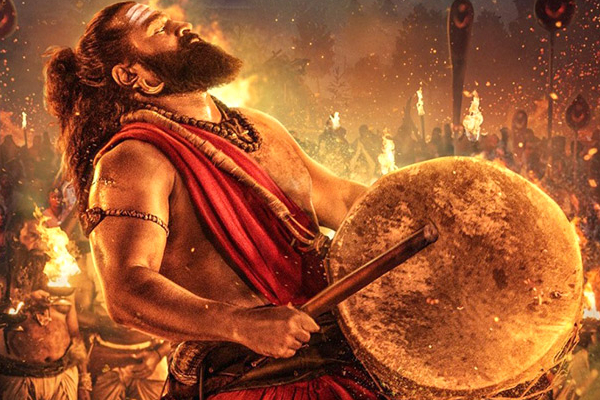For a change, South Africa’s cricket team will go to the World Cup without much fuss or fanfare and they have their rugby counterparts to thank for it. The world champion Springboks are competing at their own World Cup, for a record fourth title, and the country’s sports lovers are too Goat fuck (an Afrikaans phrase that can be loosely translated as obsessed with the Springboks) to be distracted by other things, even if the other thing is a World Cup in a different code.
That may come as a relief to Temba Bavuma, Rob Walter and co, who will have to deal with far less pressure and expectations than squads before, but they’re also using it as inspiration – to go where no South African side has gone before.
“We understand that we are a vehicle for inspiration for the country. When the team are at its best, they provide a mirror for what the country can look like, where race is not an issue, there are no political divides and they are only focused on one thing, which is the collective.”
Those are powerful words at a time when the country has faced unprecedented success alongside unprecedented hardship. In a landmark year for sport, the women’s national team became the first senior cricket side to reach a World Cup final, the women’s national football team, nicknamed They are children, they are childrenbecame the first senior side in their code to reach the knockout rounds of a World Cup and wheelchair tennis players Kgothatso Montjane and Donald Ramphadi won gold in their respective categories at Roland Garros. At the same time, there have been more rolling blackouts this year than at any time before, the Rand slipped to its lowest rate against the Dollar in history, and wealth inequality remains the largest in the world.
No sports team can solve those issues but between them, the Springboks, They are children, they are childrenthe tennis stars and the Proteas men and women are going to try to at least put smiles on faces and hope in hearts.
“The role of the team is to provide inspiration and hope and to unify,” Bavuma says. “The way to do that is by playing a brand of cricket people can get excited about. And everyone likes to win.”
Though Walter cautioned that South Africa need to “very careful,” about “reading too much,” into the result ahead of a World Cup that will be played in vastly different conditions, there are positive signs for a side that only got automatic qualification to the tournament in eighth place.
A tough top-order
At first glance, and especially when stacked up against names like Jonny Bairstow, Rohit Sharma or Babar Azam, South Africa’s top three don’t exactly seem menacing but Bavuma, Quinton de Kock and Rassie van der Dussen have numbers that suggest otherwise. They boast averages of 56.95, 44.88 and 57.62 respectively and can all lay a foundation for the big-hitters in the middle-order.
Bavuma’s 50-over pedigree is particularly overlooked, in part because of criticism over this T20 strike rate and blurring of lines between formats, but in 2023, he averages 79.62 in ODIs, has scored three hundreds and two fifties and proved himself as an astute captain.
Marco Jansen shaping up as a leading allrounder
South Africa raised eyebrows when they chose to include only one genuine allrounder in their squad especially as other squads were stacked with them but Marco Jansen is proving more than useful. He had his best game in the series-decider against Australia with a career-best 47 off 23 balls and his first five-for and Walter warned this is only the beginning. “Marco has got such huge potential. There is so much more in the tank from him,” Walter said.
Jansen has indicated he enjoys the roles differently, as he is allowed to be more carefree with the bat and more stoic with the ball. “It’s tough but it’s nice at the same time,” he said, when asked how he is carrying both loads. “It’s a bit more responsibility but for me it’s important to go out there and enjoy it. I enjoy batting and when I am batting I try and express myself and then when I am bowling, it’s more like I have a real job to do.”
South Africa probably see his division of labour the same way: bat with freedom but bowl with maturity, especially as he is likely to be their quickest bowler, with Anrich Nortje in doubt because of a back injury.
“We understand that we are a vehicle for inspiration for the country. When the team are at its best, they provide a mirror for what the country can look like, where race is not an issue, there are no political divides and they are only focused on one thing, which is the collective”
Temba They agreed is aware of the job at hand
Winning with spin and seam
“It’s one of the biggest cliches in sport: sticking to the process. But it’s a cliche because it’s true. You have to trust the processes, trust the way you want to play the game.”
South Africa want to play fearlessly and understand the other nine teams at the World Cup are aiming for the same. But they also know South African eyes may not be entirely on that for some time. The Rugby World Cup started last week and will conclude on October 29, six matches into South Africa’s Cricket World Cup campaign. That buys the cricketers time, to gauge the national mood, to work on their own game and to start their tournament under the radar. They could not have asked for a more relaxed way to enter the competition, or for more motivation. The Springboks have established themselves as the heartbeat of the nation, and they’ll set the pace but a country needs other things too. Over to you, Proteas.
Firdose Moonda is ESPNcricinfo’s correspondent for South Africa and women’s cricket





